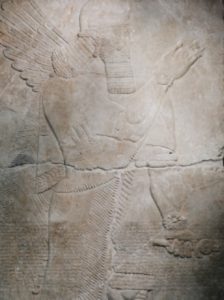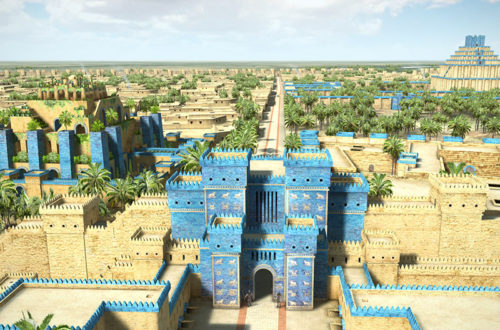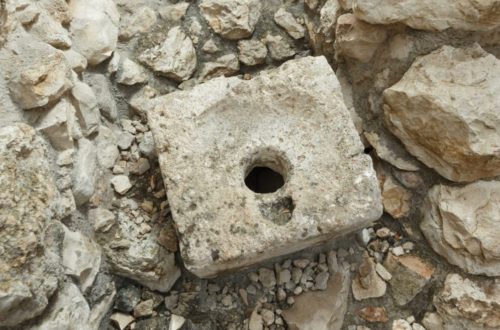
Our Covenant Keeping God
I’ve been wrestling with the period before the Babylonian exile and the destruction of Jerusalem for years now, trying to get my head around God’s longsuffering love and His people’s rejection of Him to follow after all sorts of false gods. Besides the fact that He is the one true God, He’s just so much better than any of them. Why did they so foolishly chase after idols?
Many in Judah were worshipping Molech, Ba’al, Asherah, and the gods of Egypt. What was the appeal? Were they just trying to cover all their bases? I think pride was a big part of it. It’s so human to want to think we can do something, anything, to make ourselves acceptable.
But what was the truth?
Yahweh had called Abram back in Genesis 12, promising to make him a great nation. In addition, He said that through his family, all the families of the earth would be blessed. When Abram questioned the viability of those promises in Genesis 15, Yahweh cut a covenant with Abram to confirm them.
And He said to him, “I am Yahweh who brought you out of Ur of the Chaldeans, to give you this land to possess it.”
He said, “O Adonai Yahweh, how may I know that I will possess it?”
So He said to him, “Bring Me a three year old heifer, and a three year old female goat, and a three year old ram, and a turtledove, and a young pigeon.”
Then he brought all these to Him and cut them in two, and laid each half opposite the other; but he did not cut the birds. – Gen 15:7-10
Cutting a covenant required the parties involved to pass through the cut up sacrifices. The message was, “If I break this covenant, I’m as dead as this sacrifice.” But God put Abram into a deep sleep so he couldn’t pass through the sacrifice. He took the liability on Himself.
It came about when the sun had set, that it was very dark, and behold, a smoking oven and a flaming torch passed between these pieces. – Genesis 15:17

Photo by Oleg Illarionov on Unsplash
The smoking oven, or furnace, represents the judgment of Yahweh, and the flaming torch represents the light of the world, Jesus. So, in essence, Yahweh told Abram, “You’re sitting this one out. I’m upholding your side of the bargain, too.” He knew we’d break the covenant, and He knew we had no way of making things right. But He did! He entered into covenant, knowing it would cost the life of His Son.
Typically, if a covenant was broken, that was the end of it. It was just done, broken. But our God restores. Last week I talked about how frequently He told Jeremiah that He would restore His people. But the promise of restoration didn’t start with Jeremiah; it started with Moses.
In Leviticus 26, He lays out His plan, letting His people know that they will reject Him, and that they will be punished. But they won’t be destroyed. He will remove them from the land for a time, but He will remember them.
But I will remember for them the covenant with their ancestors, whom I brought out of the land of Egypt in the sight of the nations, that I might be their Elohim. I am Yahweh. – Leviticus 26:45
How awesome is that? Knowing it would be necessary, Yahweh had a plan for reconciliation before He even made the covenant. But wait, there’s more! He didn’t just patch up the old covenant with Super Glue. He promised to give Israel a new and everlasting covenant.
“But this is the covenant which I will make with the house of Israel after those days,” declares the LORD, “I will put My law within them, and on their heart I will write it, and I will be their God, and they shall be My people.” Jeremiah 31:33
And yet they exchanged that truth for the lies of Ba’al and Molech. And in so doing, not only did they sin against God, they hurt their witness. Remember that in Genesis 12, God called them to be a blessing to all the families of the earth. Ultimately, that’s fulfilled in Jesus. But God’s heart is that none should perish, that all should come to know Him. When His people profaned His name and His sanctuary, they ruined their witness before the nations.

So what? Think about the worldview of the Babylonians. According to the Enuma Elish, the Babylonian creation account, humans were an afterthought. The gods created people to do all the work so they didn’t have to. How sad is that, believing you were created to keep the gods happy, and they didn’t even have the decency to tell you what they really wanted? You just spent your life doing your best and hoping it was enough. They had no idea they were made in the image of God, the imago dei. According to the Enuma Elish, they were created from the corpse of a defeated god. Aren’t you glad that’s not true?
Just imagine the hope the Israelites could have given to the surrounding nations if they’d stayed true to Yahweh. But of what relevance is that to us? No one believes the Enuma Elish anymore. Well, maybe no one worships Marduk, but there are plenty of people who think we have to work to make ourselves acceptable to God. And I think escalating suicide and violence rates testify to the reality that most people don’t realize they are created in the image of God. Only the God of the Bible teaches that we were created for His glory, just because He wanted it that way, and that only He can reconcile us to Himself. Which is a good thing, because we are utterly incapable of achieving righteousness on our own.
And if we really understand that, the truth of it will overflow in our lives to the people around us. Lord, give me a contagious faith.




